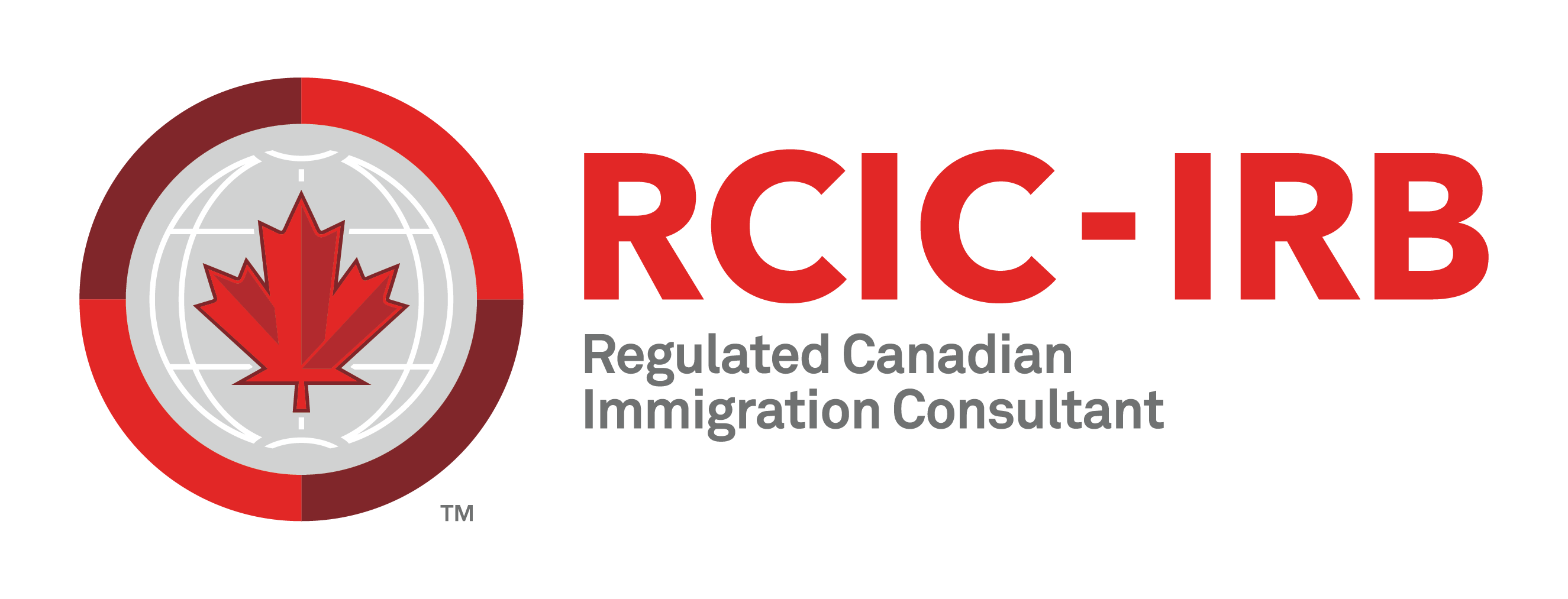Last Updated On 16 June 2025, 9:17 AM EDT (Toronto Time)
In a groundbreaking report released on June 13, Immigration, Refugees and Citizenship Canada (IRCC) exposed a series of alarming misconduct cases within its department.
From an employee soliciting bribes to approve study permits to others breaching privacy by accessing sensitive files, the report paints a troubling picture of ethical lapses within one of Canada’s most critical government departments.
This first-ever misconduct report, aimed at fostering transparency, has sparked widespread concern about the integrity of Canada’s immigration system.
With 62 founded cases of misconduct out of 76 investigations, including instances of harassment, discriminatory remarks, and violations of IRCC’s Code of Conduct, the report underscores the challenges faced by a department responsible for processing millions of immigration applications annually.
However, we believe this number could be even higher within an organization with over 11,000 employees.
As Canada continues to welcome newcomers, these revelations raise questions about accountability, oversight, and the measures in place to safeguard the system.
This article analyzes the details of the report, exploring the types of misconduct, their implications, and IRCC’s response, while offering insights into how such issues could affect public trust and Canada’s global reputation as a welcoming nation.
Table of Contents
IRCC, with approximately 13,000 employees, including those stationed at embassies worldwide, plays a pivotal role in shaping Canada’s immigration landscape.
The department processes applications for study permits, work permits, permanent residency, and refugee claims, making its integrity paramount.
However, the 2023-2024 fiscal year revealed a range of misconduct cases that threaten to undermine public confidence.
The report categorizes misconduct into several key areas:
- Harassment, Violence, and Disrespectful Behavior (9 cases)
- Breach of Values and Ethics Code or IRCC’s Code of Conduct (3 cases)
- Administrative Misconduct (37 cases)
- Violations of IRCC’s Network Acceptable Use Policy (12 cases)
- Misconduct Related to Security Clearance (1 case)
While no cases of fraud or financial misconduct were substantiated, the 62 founded cases highlight systemic issues that demand attention.
Below, we explore each category in detail, providing real-world examples and analyzing their broader implications.
Perhaps the most sensational revelation in the report is the case of an IRCC case processing agent who asked a colleague via an internal messaging app whether they would accept money to approve a study permit.
Study permits are critical for international students seeking to study in Canada, and any attempt to manipulate this process undermines the fairness of the system.
The employee who received the request promptly reported the violation, citing IRCC’s Code of Conduct.
The offending agent attempted to deflect blame with a fabricated story, claiming that an individual to whom they owed money had taken control of their laptop.
However, an investigation revealed the agent was under financial hardship, leading to the revocation of their reliability status—a critical security clearance required for their role.
Implications: This incident raises serious concerns about vulnerabilities in the immigration system.
International students contribute billions to Canada’s economy, and any hint of corruption in the study permit process could deter applicants and damage Canada’s reputation as a trusted destination for education.
The fact that the employee’s financial struggles may have driven the misconduct highlights the need for better support systems for staff under pressure.
Twelve employees were found to have violated IRCC’s Network Acceptable Use Policy by accessing sensitive immigration files without authorization.
These breaches involved employees checking the status of files for themselves, family members, friends, or acquaintances, or simply out of curiosity.
In some cases, employees attempted to fast-track applications or requested colleagues to make corrections to files, further compromising the system’s integrity.
IRCC’s systems, such as the Global Case Management System and Integrated Retrieval Information System, contain highly sensitive personal information.
Unauthorized access not only violates privacy laws but also erodes trust in the department’s ability to safeguard data.
Managers are required to report such breaches to IRCC’s privacy division to contain the damage, and the report notes that disciplinary measures, including suspensions and written reprimands, were issued.
Case Example: One employee accessed a friend’s immigration file to check its status, while another attempted to expedite a family member’s application.
These actions, while seemingly minor, represent a significant breach of protocol and could have far-reaching consequences for the individuals whose files were accessed.
Implications: Privacy breaches in a department handling sensitive personal data are particularly alarming.
Applicants entrust IRCC with personal details, and any misuse of this information could lead to identity theft, fraud, or other harms.
The report’s transparency in addressing these breaches is commendable, but it also highlights the need for stronger cybersecurity measures and employee training.
Nine cases of harassment, violence, and disrespectful behavior were substantiated, ranging from racist comments to threatening conduct.
These incidents reveal a troubling undercurrent within IRCC’s workplace culture, which could impact employee morale and productivity.
Notable Cases:
- An employee made racist remarks about a specific nationality, claiming they believed themselves “above the law.” The employee was suspended without pay.
- Another employee sent disrespectful emails criticizing their manager’s competency and refused to attend meetings, resulting in a written reprimand.
- In a particularly egregious case, an employee made a death threat to their supervisor and coerced them into adjusting a performance appraisal. The employee was subjected to multiple investigations, received two suspensions, and was ultimately terminated.
Implications: Workplace harassment and discrimination not only harm employees but also affect the quality of service provided to immigration applicants.
A toxic work environment can lead to high turnover, reduced efficiency, and errors in processing, all of which impact Canada’s immigration system.
The department’s commitment to training and awareness campaigns is a step in the right direction, but sustained efforts are needed to foster a respectful workplace.
The largest category of misconduct, with 37 founded cases, was administrative misconduct, including time theft, tardiness, absenteeism, unauthorized leave, insubordination, and misuse of government assets.
These cases reflect a lack of accountability among some employees, which can strain departmental resources and delay application processing.
Key Findings:
- Time Theft and Absenteeism: 27 cases involved employees not working scheduled hours, failing to report absences, or falsely claiming overtime. Some employees fell asleep during shifts or failed to provide medical notes for sick leave.
- Insubordination: Nine cases involved employees ignoring management instructions, working from unauthorized locations, or committing privacy breaches by mishandling procedures.
- Misuse of Government Assets: One employee used a departmental travel card for personal purchases totaling less than $1,000. The employee repaid the amount, but the incident underscores the need for stricter oversight.
Corrective Measures: Disciplinary actions ranged from written reprimands (12 cases) to suspensions without pay (22 cases) and terminations (2 cases).
One employee resigned before disciplinary measures could be applied.
Implications: Administrative misconduct, while less sensational than bribery or privacy breaches, can significantly impact IRCC’s efficiency.
Time theft and absenteeism contribute to backlogs, which have long been a pain point for immigration applicants.
Strengthening oversight and fostering a culture of accountability are critical to addressing these issues.
Three cases involved breaches of IRCC’s Code of Conduct or the Values and Ethics Code for the public sector.
These incidents highlight ethical lapses that, while fewer in number, are significant in their impact on public trust.
Case Examples:
- An employee made derogatory comments about clients from certain countries, describing them as “pushy.” The employee received a written reprimand.
- Another employee cheated on a mandatory exam required for a secondment, with assistance from a subordinate, and was suspended without pay.
- An employee formed a social relationship with a claimant at an IRCC Asylum Hotel, coached them on engaging with the department, and co-signed their car loan, creating a conflict of interest. The employee was suspended without pay.
Implications: Ethical breaches, particularly those involving preferential treatment or conflicts of interest, undermine the impartiality of the immigration process.
Such actions can lead to perceptions of favoritism, which is particularly damaging in a department tasked with ensuring fairness.
IRCC’s decision to publish this report marks a significant step toward transparency. Deputy Minister Harpreet Kochhar praised employees who reported misconduct, emphasizing the department’s commitment to a safe and ethical workplace.
The report outlines several corrective measures, including:
- Disciplinary Actions: Ranging from warning letters to terminations, IRCC tailored responses to the severity of each case.
- Training and Awareness: The department is investing in campaigns to promote ethical standards and encourage employees to report misconduct without fear of reprisal.
- Policy Frameworks: IRCC’s Fraud Management Policy Framework and adherence to the Work Place Harassment and Violence Prevention Regulations demonstrate a proactive approach to addressing misconduct.
The report also highlights the importance of whistleblowers, with Kochhar noting the “courageous employees who raised concerns or blew the whistle.”
This emphasis on a speak-up culture is crucial for preventing future misconduct.
The revelations in IRCC’s report come at a time when Canada’s immigration system is under scrutiny.
With record-high application volumes and persistent backlogs, any hint of misconduct exacerbates public frustration.
The incidents also raise questions about the adequacy of oversight mechanisms and the department’s ability to maintain public trust.
Impact on Applicants: For immigrants, refugees, and international students, the knowledge that employees may have accessed their files improperly or attempted to solicit bribes is deeply unsettling.
These incidents could deter applicants, particularly those from vulnerable populations, from pursuing opportunities in Canada.
Global Reputation: Canada prides itself on being a welcoming nation with a fair and transparent immigration system.
Misconduct within IRCC risks tarnishing this reputation, potentially affecting the country’s ability to attract talent and investment.
Workplace Culture: The report’s findings suggest that IRCC must address internal cultural issues to prevent future misconduct.
A supportive and ethical workplace is essential for ensuring that employees can perform their duties effectively.
IRCC’s report is a call to action for both the department and the public. To restore trust and prevent future misconduct, IRCC must:
- Strengthen Oversight: Implementing stricter controls on system access and regular audits can prevent privacy breaches and unauthorized actions.
- Enhance Training: Ongoing training on ethics, privacy, and workplace conduct is essential for fostering a culture of accountability.
- Support Employees: Addressing underlying issues like financial hardship, as seen in the bribery case, could prevent desperate actions by employees.
- Engage the Public: Continued transparency, including regular reports on misconduct and corrective measures, will help rebuild public confidence.
The department’s commitment to addressing these issues is evident, but sustained efforts are needed to ensure that the immigration system remains fair, secure, and efficient.
The IRCC’s first-ever report on misconduct and wrongdoing is a bold step toward transparency, but it also exposes vulnerabilities in Canada’s immigration system.
From bribery attempts to privacy breaches and discriminatory behaviour, the 62 founded cases of misconduct in 2023-2024 highlight the need for systemic change.
While IRCC’s response—disciplinary actions, training, and a focus on whistleblowers—is promising, the department must continue to prioritize accountability and ethical conduct.
For Canadians and prospective immigrants, this report serves as both a warning and an opportunity.
By addressing these issues head-on, IRCC can strengthen its operations and rebuild public trust.
As the department navigates these challenges, its ability to uphold the Canadian values of fairness and inclusivity will be critical to maintaining its global standing.
This shocking exposé is sure to spark debate and drive calls for reform. Stay tuned for updates as IRCC works to address these issues and ensure a fair and transparent immigration system for all.
How many employees work at IRCC?
11,148 employees work at IRCC as of the latest reports, down from 13,092 in 2025.
What misconduct was uncovered at IRCC?
Bribery attempts, privacy breaches, harassment, racist remarks, and administrative misconduct like time theft.
How many IRCC employees were involved in misconduct?
62 founded cases out of 13,000 employees, a small minority, were reported.
What actions did IRCC take against misconduct?
Disciplinary measures included written reprimands, suspensions without pay, terminations, and security status revocations.
How did IRCC address privacy breaches?
Employees faced suspensions, reprimands, or resignations, and managers reported breaches to IRCC’s privacy division.
Why did IRCC publish the misconduct report?
To promote transparency, encourage whistleblowing, and demonstrate commitment to a safe, ethical workplace.
You may also like: New Canada Child Benefit Payment to Be Sent on June 20
New GST Payment Increase In Canada Effective July 2025
New Canada CDB Payment Of Up To $200 Starting In July 2025
New TD Bank Fee Increase In Canada Effective July 2025











Leave A Comment
You must be <a href="https://zfcanada.com/wp-login.php?redirect_to=https%3A%2F%2Fzfcanada.com%2F2025%2F06%2F16%2Fcanada-immigration-departments-bribery-privacy-breaches-exposed%2F">logged in</a> to post a comment.